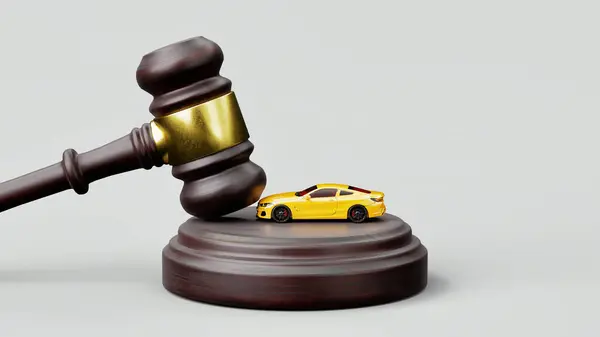How The California Lemon Law Protects Your Rights As A Car Buyer
The California Lemon Law provides strong consumer protections for car buyers facing persistent vehicle problems. It is one of the most comprehensive and consumer-friendly lemon laws in the United States, empowering car owners to seek repairs, replacements, or refunds when their new or used vehicles repeatedly fail to meet expected standards. Understanding how the law works, its requirements, and how it can benefit you is essential for any California car buyer. Access more information at this link.
What is the California Lemon Law?
The California Lemon Law, formally known as the Song-Beverly Consumer Warranty Act, was enacted to protect consumers who purchase or lease vehicles that do not meet basic performance and safety standards. The law specifically covers vehicles with defects that substantially impair their use, value, or safety and ensures that manufacturers honor warranties for new and used vehicles sold with them.
How the Law Applies to Different Types of Vehicles
The California Lemon Law applies to both new and used vehicles, but there are specific conditions that each type must meet. For new vehicles, the law is relatively straightforward and encompasses a wide range of issues. Used vehicles are covered if they are sold with a warranty, whether provided by the manufacturer or the dealership. Additionally, the law covers vehicles bought primarily for personal, family, or household use, although certain business-owned vehicles may also qualify if they are below a certain weight limit and are primarily used for personal purposes.
Understanding Your Rights as a Car Buyer
Knowing your rights under the California Lemon Law is crucial to fully leveraging its protections. When you buy a vehicle with a warranty, the manufacturer is legally required to uphold that warranty. If defects or issues arise that compromise the vehicle's safety, functionality, or resale value, you have specific rights and recourse options under the Lemon Law.

The Definition of a "Lemon" Vehicle
To qualify as a lemon under California law, the vehicle must have one or more substantial defects that impair its use, safety, or value. For example, a car with faulty brakes or an unreliable engine would likely qualify as a lemon, as these defects affect both the vehicle’s operation and safety. Cosmetic issues or minor inconveniences, however, generally do not meet the threshold for Lemon Law protection.
Your Right to Repairs and Resolution
As a consumer, you have the right to seek repairs from an authorized dealership if your vehicle exhibits issues covered under warranty. California law requires that you give the dealership or manufacturer a reasonable number of repair attempts to resolve the defect. The specific number of repair attempts required varies depending on the nature of the issue. For example, safety-related defects may only require two repair attempts, while other types of issues may require more before the vehicle is deemed a lemon.
Steps to Take if You Suspect Your Car is a Lemon
If you believe your car may qualify as a lemon, it’s essential to follow certain steps to protect your rights under the California Lemon Law. Acting promptly and keeping thorough documentation can improve your chances of achieving a favorable outcome.
- Document Every Repair Attempt: Every time you take your vehicle to the dealership for repairs, make sure you keep records of the visit, including any invoices, repair orders, and written descriptions of the issues reported.
- Notify the Manufacturer: If multiple repair attempts have failed to resolve the issue, notify the vehicle manufacturer in writing. While dealerships handle repairs, it’s the manufacturer that ultimately decides whether a vehicle qualifies for a refund or replacement under the Lemon Law. Providing written notice allows the manufacturer to review the repair history and take necessary action.
- Pursue a Replacement or Refund: If your vehicle continues to have substantial issues after a reasonable number of repair attempts, you have the right to request a replacement vehicle or a refund.

Key Criteria for a California Lemon Law Case
For a vehicle to qualify as a lemon under California law, it must meet several criteria. Understanding these requirements can help you assess whether your car falls under Lemon Law protection.
Substantial Defects
The defect must significantly impair the vehicle’s use, value, or safety. Minor issues or inconveniences usually do not qualify. Examples of substantial defects include repeated transmission issues, brake failures, or electrical system malfunctions.
Reasonable Number of Repair Attempts
California Lemon Law generally requires a "reasonable" number of repair attempts. This is typically two or more attempts for safety-related issues or four or more attempts for other substantial defects. If your vehicle has been in the shop for more than 30 cumulative days, it may also qualify as a lemon.
Time and Mileage Limitations
Your car must have been purchased or leased with a warranty, and the issues must occur within the warranty period. For new vehicles, this is typically the first 18 months or 18,000 miles, whichever comes first. However, in some cases, warranty extensions or "secret warranties" may apply, so consult with a legal professional if you are outside this window. Discover more by clicking this source.
The Importance of Legal Assistance in a Lemon Law Case
While California’s Lemon Law is designed to be consumer-friendly, navigating the process alone can be challenging. In many cases, seeking help from a Lemon Law attorney can increase your chances of a successful outcome.
How an Attorney Can Help
An attorney can assess the strength of your Lemon Law claim, communicate with the manufacturer on your behalf, and, if necessary, represent you in court. Experienced attorneys understand how to build a compelling case, ensuring that all necessary documentation is presented and that the manufacturer adheres to legal obligations.
Cost of Legal Representation
One benefit of pursuing a Lemon Law case in California is that the manufacturer may be required to cover attorney fees if you win your case. This arrangement allows consumers to seek legal assistance without incurring additional costs, making it easier to access professional representation.

